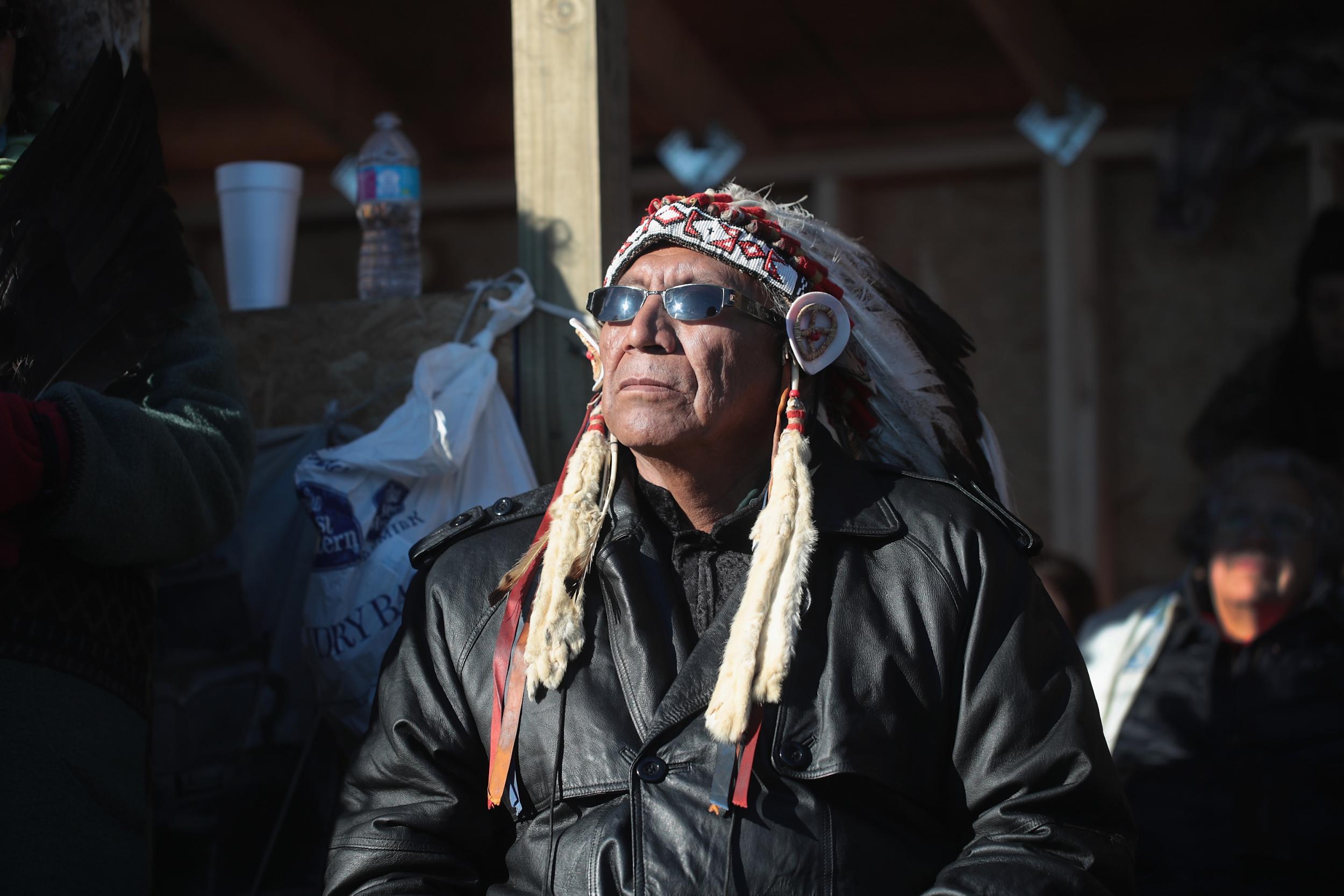Future of Dakota Access Pipeline in question again after judge orders review of permits
The ruling could result in operations on the controversial pipeline being halted

Your support helps us to tell the story
From reproductive rights to climate change to Big Tech, The Independent is on the ground when the story is developing. Whether it's investigating the financials of Elon Musk's pro-Trump PAC or producing our latest documentary, 'The A Word', which shines a light on the American women fighting for reproductive rights, we know how important it is to parse out the facts from the messaging.
At such a critical moment in US history, we need reporters on the ground. Your donation allows us to keep sending journalists to speak to both sides of the story.
The Independent is trusted by Americans across the entire political spectrum. And unlike many other quality news outlets, we choose not to lock Americans out of our reporting and analysis with paywalls. We believe quality journalism should be available to everyone, paid for by those who can afford it.
Your support makes all the difference.After years of heated debate, oil started flowing through the Dakota Access Pipeline for the first time this summer. But a recent ruling from a federal judge has put its future in question once again.
US District Court Judge James Boasberg has ruled permits for the controversial oil pipeline were issued without proper consideration of its environmental impacts, and must be reconsidered. He has yet to rule on whether oil transport will be shut down in the interim.
The Standing Rock Sioux Tribe has long protested the construction of the 1,168-mile pipeline, which runs within a half-mile of their North Dakota reservation. The tribe argues the pipeline threatens cultural and historical sites, desecrates sacred waters, and poses an environmental threat to the reservation.
Former President Barack Obama halted construction on the pipeline in 2016, pending an environmental impact statement from outside analysts.
President Donald Trump, however, ordered the US Army Corps of Engineers to issue permits for its construction shortly after his inauguration.
White House Press Secretary Sean Spicer said at the time that the president was "very, very keen" to maximise use of America's natural resources.
“It’s good for economic growth, it’s good for jobs, and it’s good for American energy,” he said.
Now, Mr Boasberg says the permits were issued without proper consideration of the environmental impact statement. In particular, the Corps failed to adequately review the pipeline’s effect on fishing rights, hunting rights, environmental justice, or the controversial nature of its construction.
“To remedy those violations, the Corps will have to reconsider those sections of its environmental analysis upon remand by the Court," the judge wrote.
A later ruling will decide whether pipeline operations must cease in the interim.
This is the Standing Rock Sioux tribe’s third attempt to block the pipeline through legal action. Last summer, thousands of people gathered near the construction site to try to shut down the pipeline through protest. The Army Corps shut down the protests in February.
Tribe Chairman Dave Archambault II called the judge's ruling a “significant victory”.
“The previous administration painstakingly considered the impacts of this pipeline, and President Trump hastily dismissed these careful environmental considerations in favour of political and personal interests,” he said in a statement.
The chairman added that he would ask the court shut down pipeline operations immediately.
Other members of the tribe, however, were hesitant to declare victory.
Chase Iron Eyes – an attorney for Lakota Law, which represents some of the tribe members – says he felt hopeful when Mr Obama halted the pipeline's construction in 2016. But now that Mr Trump has allowed it to be completed, he has little hope the tribe's circumstances will change.
"I live right here on Standing Rock, and when that pipeline breaks, it’s my children who are going to suffer," he told The Independent. "Unless something gives me an objectively reasonable indication that circumstances could be changed then I’m going to take these things with a grain of salt."
The court victory, he added, rings hollow now that the pipeline is already in the ground.
“I can’t pin down anything other than a good vibe coming from the fact that something went our way," he said. "Something probably should have gone our way before construction began.”
The US Army Corps of Engineers did not respond to a request for comment.
Subscribe to Independent Premium to bookmark this article
Want to bookmark your favourite articles and stories to read or reference later? Start your Independent Premium subscription today.
Join our commenting forum
Join thought-provoking conversations, follow other Independent readers and see their replies
Comments